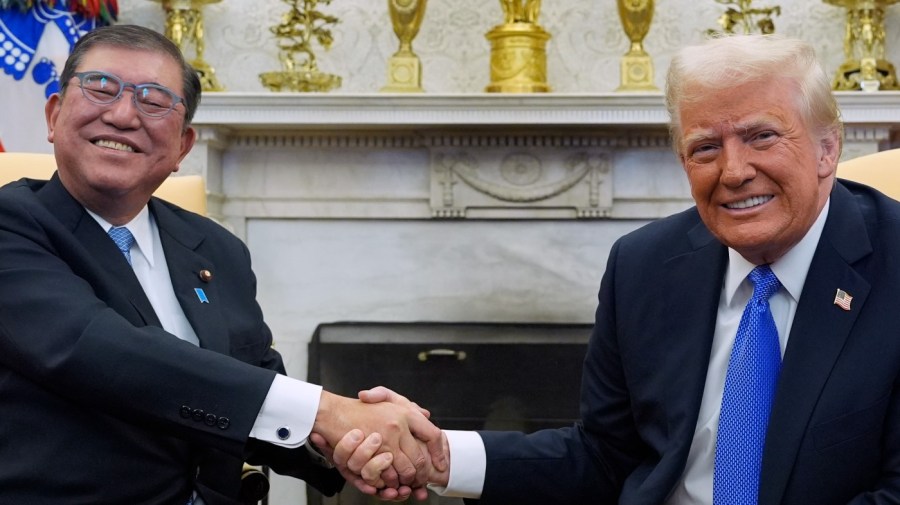Today’s political news centers on President Donald Trump’s meeting with Japanese Prime Minister Shigeru Ishiba at the White House, focusing on trade issues and potential talks with North Korea. Here’s a recap of the key points:
Trump-Ishiba Meeting: Trade and Economic Focus
President Trump and Prime Minister Ishiba met at the White House to discuss bilateral relations, with a strong emphasis on trade and economic issues. Key points from the meeting include:
Trump expressed his desire to eliminate the U.S. trade deficit with Japan.
The President announced plans to impose reciprocal tariffs on other countries next week.
Ishiba highlighted potential new investments in the U.S. by Japanese automotive companies.
Trump maintained his opposition to Nippon Steel’s bid to acquire U.S. Steel.
Potential Impact and Importance
This meeting sets the tone for U.S.-Japan relations under Trump’s second term and Ishiba’s new administration. The focus on trade deficits and potential tariffs signals a continuation of Trump’s “America First” economic policies, which could have significant implications for global trade.
North Korea Talks
While not directly addressed in the meeting with Ishiba, Trump has indicated a willingness to revive talks with North Korea.
Trump’s administration includes officials experienced in North Korea negotiations from his first term.
Experts suggest Trump might shift towards a nuclear freeze approach rather than complete denuclearization.
Background and Context
Trump’s previous engagement with North Korea, including three meetings with Kim Jong Un, marked a significant departure from traditional U.S. policy. However, these efforts ultimately did not lead to North Korea’s denuclearization.
U.S.-Japan Alliance
Despite the focus on economic issues, both leaders emphasized the importance of the U.S.-Japan alliance.
A joint statement is expected to underscore cooperation in various areas, including security and economy.
Ishiba aims to secure assurances from Trump about the alliance’s strength.
Challenges for Ishiba
The Japanese Prime Minister faces a delicate balancing act in managing relations with Trump’s unpredictable foreign policy approach.
Ishiba leads an unstable minority government and lacks the personal rapport with Trump that his predecessor, Shinzo Abe, enjoyed.
Some in Japan question whether meeting Trump so early in his term is wise, given recent U.S. pressure on other allies.
Multiple Perspectives
While the meeting appears to have been cordial, concerns remain about the potential impact of Trump’s trade policies on the global economy. Japanese officials hope to maintain stable relations, while some U.S. analysts worry about the implications of a potential shift in North Korea policy.
This meeting marks an important juncture in U.S.-Japan relations and sets the stage for future interactions between the two countries under their current leadership. The outcomes of these discussions could have far-reaching effects on global trade, regional security, and the broader international order.









